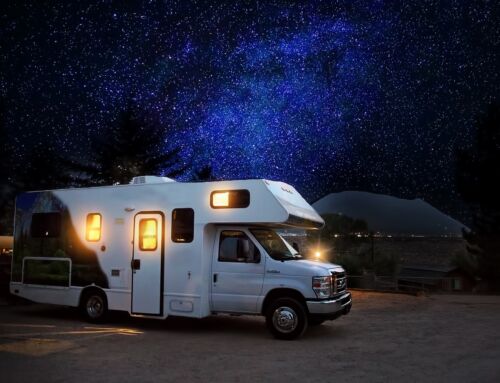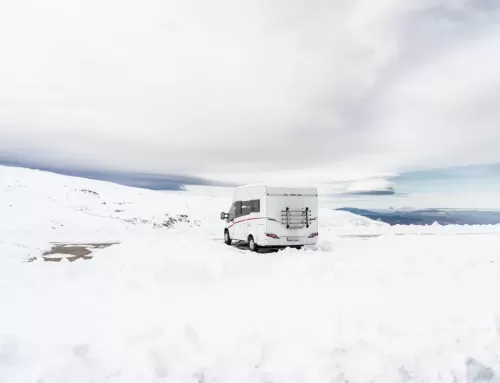As summer activities and travel plans come to a close, many RV owners gear up to store their recreational vehicle for the winter months. While it makes sense to leave your RV somewhere safe during the off-season, prolonged lack of use could lead to a myriad of issues. Before saying your farewells for the winter, follow these tips to prepare your RV for storage:
1. Give your RV a thorough cleaning
It may seem counterintuitive to clean your RV before putting it away for several months, but a good deep clean can help preserve your vehicle during its time on break.
For the interior, clear and clean out all cabinets and your refrigerator, and be sure to wipe everything down with cleaning agents and anti-bacterial wipes. For the exterior, clean the entire rig, including the roof, to rid it of any dust or black streaks. Then, give your RV a good wax, which will protect the exterior from sun damage and reduce dirt build up.
Be sure to check all of your seals and fix or replace any areas that appear cracked or damaged. The biggest risk of RV storage is water damage, so a few minutes of caulking could save you from expensive repairs down the road.
2. Keep your RV ventilated
Moisture build up is a major concern for RV owners while their vehicle is in storage. Too much moisture can cause mold and musty smells. The best way to prevent moisture build up is by ensuring that your RV is properly ventilated while in storage.
Leave all of your cabinets, closets and the refrigerator door propped open, so they can air out if any moisture gets in. Invest in a cover for your rooftop vents so you can leave them open without the risk rainwater entering your RV.
3. Protect the tires
Tires are made for the road, so prolonged storage could lead to damage if they aren’t properly prepped. You want to be conscience of your RV storage conditions and the weight of your vehicle on the tires. While it’s ideal to store your RV somewhere dry, cool and out of direct sunlight, that’s not always possible. For ways to protect your RV tires, check out the Goodyear Recreational Vehicle Tire and Care Guide.
4. Check on your RV
Out of sight, out of mind is a common occurrence with stored vehicles, but try to avoid it if you can. Regular check-ins with your RV can help you find issues early on. Think about it – a leak that’s been there a week will cause much less damage that leak that sat unattended for several months.
When you check on your RV, be on the lookout for any rodent droppings, as pests can cause expensive damage to your vehicle. If you have time, do a quick wipe down of the interior and exterior to keep your RV clean for its next use.




